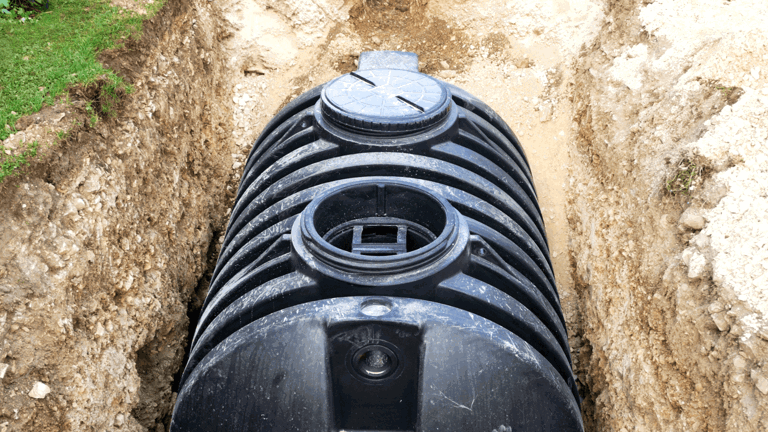Septic tanks play a crucial role in managing domestic wastewater in rural and semi-rural areas across the UK, however, while England and Wales share many legal and environmental frameworks, there are significant differences between septic tank compliance regulations in both countries, following the devolution of environmental matters.
It is essential therefore when dealing with environmental compliance, property transactions, or planning applications that you are aware of these subtle but crucial differences.
Both England and Wales historically follow similar principles for regulating small sewage discharges from septic tanks and treatment plants, governed primarily by the Environmental Permitting (England and Wales) Regulations 2016. These regulations introduced the General Binding Rules, which provide conditions under which a septic tank or small sewage treatment plant may be used without an environmental permit.
Following the formation of Natural Resources Wales and as a result of evolving policy direction within the devolved Welsh administration, regulatory divergence has become more noticeable, and it is important to note that there are key differences and separate guidance documents applicable for each country.
Regulatory bodies
In England, regulation is overseen by The Environment Agency who maintains up-to-date guidance on septic tank compliance, including changes to the General Binding Rules and deadlines for upgrading non-compliant systems.
In Wales, regulation falls to Natural Resources Wales who oversee the registration and permitting of septic tanks, providing guidance on the running and maintenance of these systems.
Discharge location requirements
In England, septic tanks that discharge directly to surface water (e.g. a stream or ditch) must be replaced or upgraded to a full sewage treatment plant. The Environment Agency imposed a deadline requiring existing systems to comply by 1st January 2020.
In Wales, there is no specific deadline requiring septic tanks that discharge directly to surface water to be upgraded however, such discharges are generally not permitted. While Natural Resources Wales has not imposed a specific deadline, should a discharge be found to be causing pollution, an upgrade or replacement may be required within a specified timeframe, and these are typically assessed on a case-by-case basis.
Registration and permitting
In England, if septic tank systems operate within the General Binding Rules, they typically do not require formal registration or a permit, however, there are exceptions and property owners are still responsible for ensuring compliance and may need to demonstrate this if required. The focus is on self-certification and compliance with the rules.
In Wales, Natural Resources Wales requires septic tanks and small sewage treatment plants that discharge to ground or surface water to be registered and to continue to take a more proactive approach to monitoring. While many systems can be registered for free, certain systems and circumstances may necessitate a full environmental permit.
Nutrient management and catchment sensitivity
In England, nutrient neutrality is emerging as a planning concern and has become a planning consideration in certain catchments, particularly in areas such as the Solent or the River Stour. The emphasis of nutrient neutrality appears to be on managing point-source pollution through system upgrades.
In Wales, The Control of Agricultural Pollution (Wales) Regulations 2021, which primarily targets agricultural activities, introduced nutrient limits that can indirectly affect septic tank usage. Natural Resources Wales has a strong focus on integrated catchment management and actively assesses septic tank discharges, particularly those to surface water.
Conclusion
Whether advising on rural property sales, development applications, or environmental compliance, understanding the key differences in septic tank regulation between England and Wales is no longer optional, it is essential.
As regulatory frameworks in England and Wales continue to diverge, staying informed is vital, particularly when advising clients on rural property transactions or dealing with planning and environmental obligations. If you are unsure about the current requirements or need assistance navigating compliance, our specialist property team is here to help.
Key Contact

Joanne Parsons
Real Estate Partner
Joanne is a Partner in our Real Estate team with vast experience in residential property matters and conveyancing.




